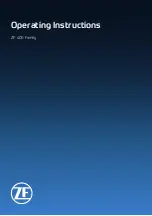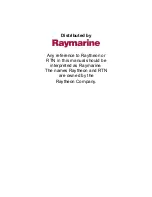
Introduction
5
Nothing
Comes Close to a Cobra
®
FCC Licensing Information
Sea Tow Automated Radio Check (ARC) System
Please try the Sea Tow Automated Radio Check service. Areas where the safety check
service is available include the East Coast, Gulf of Mexico, and Southern California,
as well as in select inland regions. The first and only boating safety program of its
kind, the Sea Tow Automated Radio Check service is fully automated and allows 24
hour a day automatic responses to radio check calls.
Conducting a radio check through the Sea Tow Automated Radio Check service
couldn’t be simpler. All boaters need to do is tune their VHF radios to Channel 24, 25,
26, 27 or 28, depending on the region, key the mic, and ask for a radio check. The
Automated Radio Check system responds to each radio check with an automated
reply, and also replays to the boater’s original radio transmission, allowing him or her
to assess the strength of the signal and confirm the VHF radio is in good working
order.
To find the Sea Tow Automated Radio Check service channel in an area, owners
should visit http://www.seatow.com/arc. The web page links to an instructional video
demonstrating how to use the service step by step.
FCC Licensing Information
•
CobraMarine VHF radios comply with the FCC (Federal Communications
Commission) requirements that regulate the Maritime Radio Service.
The radio operates on all currently allocated marine channels and is switchable for
use according to U.S.A., International or Canadian regulations. It features instant
access to emergency Channel 16 and calling Channel 9 as well as NOAA (National
Oceanic and Atmospheric Administration) All Hazards Radio with Alert.
Station License
An FCC ship station license is no longer required for any vessel traveling in U.S.A.
waters which uses a VHF marine radio, RADAR, or EPIRB (Emergency Position
Indicating Radio Beacon), and which is not required to carry radio equipment.
However, any vessel required to carry a marine radio on an international voyage,
carrying an HF single side band radiotelephone, or carrying a marine satellite
terminal must obtain a station license.
FCC license forms and applications for ship and land stations can be downloaded
through the Internet at www.fcc.gov. Forms can also be obtained by calling the FCC
at 888-225-5322.
4
English
General Precautions
Introduction
NOTICE
Your radio is waterproof only when the batteries are properly installed.
AVOID
using or storing the radio at temperatures below -4˚F (-20˚C) or above
140˚F (60˚C).
KEEP
your radio at least 3 ft (0.9 m) away from your vessel’s magnetic
navigation compass.
DO NOT
attempt to service any internal parts yourself. Have any necessary
service performed by a qualified technician.
This radio is supplied with a lithium-ion (LiON) rechargeable battery pack.
■
Use only the Cobra charger to recharge lithium-ion (LiON) batteries in the radio.
■
Do not short circuit the battery pack.
■
When replacing the batteries, dispose of the old batteries properly. Batteries
may explode if disposed of in a fire.
Changes or modifications to your radio MAY VOID its compliance with
FCC (Federal Communications Commission) rules and make it illegal to use.
Recommendations for Marine Communication
•
The frequencies your radio uses are set aside to enhance safety afloat and for vessel
navigation and operational messages over a range suitable for nearshore voyages.
If the 6 watt maximum output of your radio is not sufficient for the distances you travel
from the coast, consider a higher powered handheld or installing a Cobra Marine fixed
mount radio with up to 25 watts of output power. (Visit www.cobra.com or your
local dealer for model availability.)
If traveling far offshore, you should consider adding even more powerful radio
equipment such as HF single side band or satellite radio for your vessel.
The U.S. Coast Guard does not endorse cellular telephones as substitutes for marine
radios. They generally cannot communicate with rescue vessels and, if you make
a distress call on a cellular telephone, only the party you call will be able to hear
you. Additionally, cellular telephones may have limited coverage over water and
can be hard to locate. If you do not know where you are, the Coast Guard will have
difficulty finding you if you are using a cellular telephone.
However, cellular telephones can have a place on board where cellular coverage
is available — to allow social conversations and keep the marine frequencies
uncluttered and available for their intended uses.
Introduction
MRHH350W_FLT_MANL_ENG_MRHH330_ENG_Body 10/30/13 2:39 PM Page 4






































